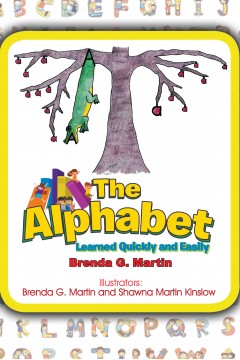Education
Showing 11–20 of 25 results
-
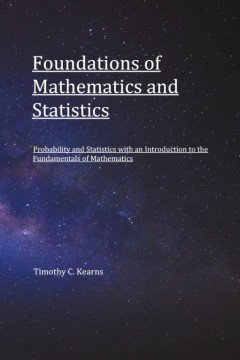
Foundations of Mathematics and Statistics: Probability and Statistics with an Introduction to Fundamentals of Mathematics
Foundations of Mathematics and Statistics is a summary of the basic principles of math and statistics for students of the sciences. The goal is to provide a good foundation of knowledge and ability with the basics of math and statistics that students need. This includes logic, sets, number systems, algebra, geometry, trigonometry, and the calculus. Then the remainder of the book deals with the fundamental topics of applied and mathematical statistics, including probability, random variables, expected value, samples, distributions, hypothesis testing, confidence intervals, and an introduction to linear regression and correlation.
The book is meant to be used by college and graduate level students that need a good review of math fundamentals, with an introduction to basic statistical thinking and methodology. Those that need a good familiarity with math and statistics at the college and graduate levels would find this book a valuable supplemental reading, along with the fair amount of exercises that are included in order to reinforce the important ideas.
About the author:
The author, Timothy C Kearns, has a BS degree in Statistics and Mathematics from Virginia Tech, 1983. After college, he worked at the U.S. Census Bureau and has more than 15 years of tutoring experience at the college level in mathematics and statistics. He has gained extensive knowledge and experience with applied and theoretical mathematics.
$30.00 -
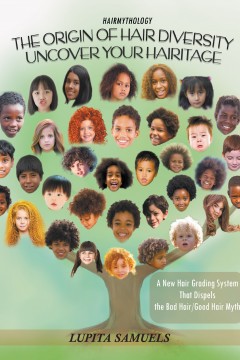
Hairmythology – The Origin of Hair Diversity: Uncover Your Hairitage – A New Hair Grading System That Dispels the “Bad Hair/Good Hair” Myth
People, all over the world, tend to subscribe to the ‘bad hair/ good hair myth’ as a benchmark for grading hair-quality; if not for themselves, then, for others.
Historical facts, scientific facts, and fiction merge together in a dramatic, contemporary, background story, that sets the stage for demonstrating how differences in our ‘hair-quality’ came about.
This book includes a workbook and reflection section which challenges the reader not only to rethink the “bad hair/good hair myth”, but to possibly, deconstruct it.
This book, therefore, gives birth to a new Hair-Grading-System: “Good Hair/No-Bad Hair!” This system validates all hair types, and subsequently, all human beings. Hair diversity needs not spell, hair a-d-v-e-r-s-i-t-y. Simply, biodiversity!
Recommended for children, teens and adults of all hair types, including bald.
$5.99–$24.99 -
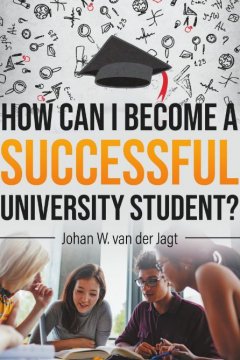
How Can I Become a Successful University Student?
Transitioning to university life and student drop-out rates have become major concerns. This informally easy-to-read short manual was written and designed with the goal to make all students successful at any university. It is written for middle to high school and especially university students, principals, professors, teachers, and parents. The content is based on brain research. Having introduced the concept of freedom, the author discusses the importance of setting goals for oneself and practical steps in developing a time management plan to reach them. Disadvantages of procrastinating and advantages of responsibility are addressed. Important times and methods of how to study are given as well as computer use. Based on learning styles, the author discusses portfolios and a variety of methods of how to study both class and textbook notes with special emphasis on organization and including processes of how to efficiently study in groups. Cell phones are briefly addressed. The Manual concludes with Study Guide examples that students may receive from their professors or create by themselves to help them become successful and graduate in their anticipated time frame.
About the Author:
Johan W. van der Jagt has had a varied and culturally diverse career. Living in the Netherlands for only a short while after birth, his family immigrated to Canada and subsequently to the United States. He is bilingual-Dutch and English and has had courses in Latin, Spanish, and French at both high school and college levels. He earned both his B.A. and M.Ed. degrees in psychology and special education respectively from McDaniel College, MD. He taught for more than fifteen years in Canada as a Special Education-Support Grades 1-8, and inclusive Grades 1, 2, and 3 teacher. After earning his Ph.D. from Southern University-Baton Rouge, LA, specializing in learning disabilities, he taught at the University of West Alabama, Southeastern Louisiana University and continues in his professorial functions of teaching, research and service at Bloomsburg University of PA. for a current total of more than 20 years. His interests and publications based on years of experience, brain and intervention strategies research are especially meant to make ALL students successful at all developmental levels.
$2.99–$7.26 -
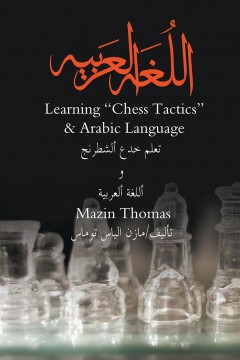
Learning “Chess Tactics” & Arabic Language
By Mazin Thomas
What is chess??? Many people think it’s a game for fun, while the truth is it’s a mind sport a not a body one. It’s even regarded as a science, and that’s true also, otherwise it wasn’t to be taught at schools in many countries!!! In this game you need to use your brain to beat another brain and you both have the same tools, regardless who is the player against you, even if he’s the world champion Now, what about the ARABIC language? As a matter of fact, the ARABIC is a very wide language belongs to people ancestors were the leader civilization of the world some time ago. It’s the language of imagination that inspires poets, and can still does to who learns it. It’s wide due to the huge number of its vocabulary, and also the specialization of them. You won’t find a word with the same spelling and a different meaning for it if it’s a noun or a verb as in the ENGLISH language, like for example the word “match”. Moreover specification of the words. You’ll find a 24 name, one for each hour of the 24 hours of the day in one of the chapters .Whether it’s strange or not, this book did combine them together. Starting the chapter with the name of CHESS TACTIC, and translate it into ARABIC, then use the letters of this translated word as an entrance to start learning the ARABIAN Alphabet, and then comes the grammar subjects. After that the chess tactic begins with a lot of different information about chess. Hope this book is useful for you.
$26.99–$38.99 -
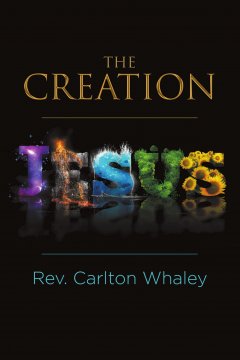
The Creation
This book was written to enhance the readers concerning the making of the whole universe and all that exist according to scripture and who made it and placed everything in its’ proper place. It dismisses all theories and myths that have been taught throughout the world. There is only one God who have created everything including the atmosphere. No other gods created this world as we were taught in our schools. It dismisses all myths and theories that exist by Scientist, and Astrologist. Everything was discussed thoroughly from the Holy Bible, King James Version. Everything that was created was explained and the way it was created.
About the Author:
My name is Rev. Carlton Whaley and I am an ordained Baptist preacher from a town called Ladson which is in South Carolina in the United States of America. I was born and raised in a town called Mount Holly in the same state. I have a Bachelor of Theology from International Seminary located in Plymouth Florida. I Have a Bachelor in Christian Counseling and Master of Divinity from Carolina Theological Bible Institute located in Bowman SC, where some of my understanding came from in writing this book and working in the Ministry. I am married with one daughter.$3.99–$11.00 -
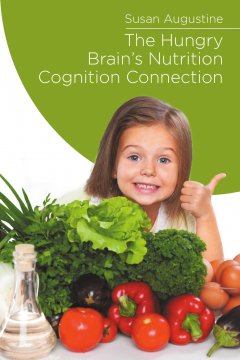
The Hungry Brain’s Nutrition Cognition Connection
The brain gets fed first! That is the important idea for the book, The Hungry Brain’s Nutrition
Cognition Connection that relates to: mood, mind, memory and behavior. After several
years of teaching children with attention deficit disorder (ADD and ADHD), learning
disabilities, and severe behavior problems Dr. Augustine decided to look to the brain and to
biochemistry.
The theme throughout the book is biochemical individuality and feeding the very hungry
brain. Many students and adults suffer from malnutrition of the brain and other specific
biochemical disorders such as pyrrole disorder and metal metabolism disorder.
Making “smart” choices for the hungry brain is front and center of this cutting edge book.
As the educational community faces the challenges of childhood obesity and food allergies,
people are eager to learn how to guide their students and their own children in the care of
the body and especially feeding their brains. Dr. Augustine provides a simplification of the
food groups: animal foods; plant food and junk foods. She tells why breakfast is still the
most important meal of the day and even more so if a child has problems with learning or
behavior. Highlighted as well is the importance of daily movement, producing nerve growth
factor (NGF). Exercise is a family affair! Additionally, there are brain joggers for parents and
teachers as practical strategies for teaching nutrition as part and parcel of a lifelong learning
strategy and healthful daily habits.
Teachers will appreciate the mini lessons for easy integration into their curricula.About the Author
“Dr. Susan Augustine has been in the field of education her entire adult life, teaching across
the spectrum of pre-kindergarten through graduate students. Establishing her career as a
special education teacher she soon realized how nutrition and biochemistry are involved
in processes of mood, mind, memory and behavior. Working with children and adults
with depression, learning disorders, attention deficit disorder, anxiety, and other health
impairments she turned her attention to the brain and specifically what we feed our brains.
Dr. Augustine conveys a nutrition and health perspective into all of her work in life and has
done so in the United States and in Singapore.
The author of: Attention Deficit Disorders; What We Know, What it Means, and What We
Can Do, The Hungry Brain’s Nutrition/Cognition Connection; Tools for the Cooperative
Classroom, and Thinking About Nutrition the New Nutrition Education. Dr. Augustine’s
classes have assisted people in moving toward a more healthful way of thinking and living.
Bringing the viewpoint of mental and physical health, Susan is also a nutrition counselor,
public speaker, trainer of teachers, and has appeared as the nutrition expert on television
programs in Chicago: Health Town and cable televisions, Food for Life.”$2.99–$27.59 -
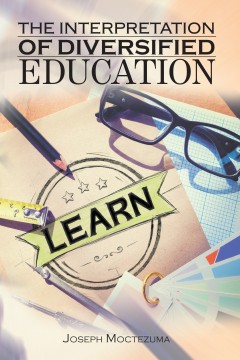
The Interpretation of Diversified Education
There is a battle going on in the American classroom, while an educational war is going on throughout the United States academic field!
The question arises: is teaching today oriented towards a student-centered curriculum or emphasizes on an exterior technological approach without no cognitive thinking involved.?
Second question: is the behavior in the classroom influenced by introverted cognitive thinking or outside environmental forces such as cultural diversity, language culture that come into play and collide with the inside cognitive forces in the classroom creating a hurricane of academic diversity in learning.
How can a teacher impart knowledge in a multicultural, multi-intelligence classroom, and what are the issues involved that are pertinent to this educational dilemma? Today school academic policies advocate a technological approach to learning, leaving the teacher in most cases as a monitor or proctor of a on line classroom setting. This book addresses such issues in order to understand the complexity of American Education.
About the author:
Joseph Moctezuma obtain a Master of Education at Cambridge University and has published several prior books on a variety of topics, from Philosophy in “Creative Mysticism in a Free Universe, to an exploration of Love in “Before Your Eyes.” Mr. Moctezuma is also an avid reader and writer of Poetry. His poetry has been published in books such as “The Naked Body of Desire” to “Spiritual Quest in Paradigm of Existence.”
He is married and lives with Spouse and three sons and a daughter in Southern California area.
$2.99–$7.40 -
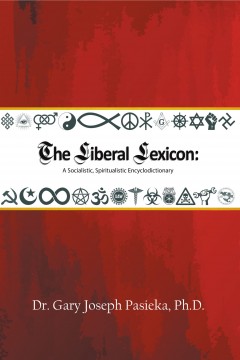
The Liberal Lexicon: A Socialistic, Spiritualistic Encyclodictionary
The Liberal Lexicon: A Socialistic, Spiritualistic Encyclodictionary is an academic work, popularly written, in a class by itself. It is a hybrid encyclopedia and dictionary from a Socialist, Spiritualist perspective. It is lavishly laded with interesting incidentals, fascinating facts, amusing anecdotes, and profound editorials. This work is designed to fortify one’s vocabulary, while edifying one’s social conscience. This Progressive lexicon can be used as an alternative reference book, or a leisurely read through. It makes a marvelous traveling companion. I am certain that this book will open your eyes, move your mind, and sway your heart.
About the author:
Dr. Gary Joseph Pasieka (b. 1951) is an Educator, Philosopher, Metaphysician. He was born in Highland Park and raised in Hamtramck, two small industrial communities in the heart of Detroit. Dr. Pasieka earned his academic degrees at Detroit’s Wayne State University. He had served as a Teacher, School Administrator, and University Professor in Michigan, Texas, Indiana, Montana, and Venezuela. He presently resides in Trinity, Florida and Montego Bay, Jamaica. Dr. Pasieka has long been and advocate and defender of the poor, exploited, and oppressed. He is a devote Spiritualist and dedicated Socialist, a formidable combination.
$72.72–$90.38 -
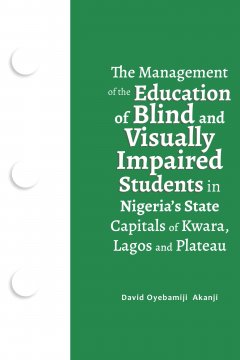
The Management of the Education of Blind and Visually Impaired Students in Nigeria’s State Capitals of Kwara, Lagos, and Plateau
I was born in the village of Bode in the year 1955. I became blind when I was five years of age. I did not start my primary school education until I was 10 years of age. I successfully completed my primary school education in the year 1966. I did not stop there, in 1967, I attended Osodi Vocational Training Center for the Blind. In 1968, I completed my course there as a telephone operator. I was also taught advance braille. In 1969, I attended IWO Catholic Secondary Modern School where I was trained as a typist and completed in 1970. In 1971, I had the opportunity to attend Ibadan Christ Apostolic Grammar School where I did my high school education. In 1975, I graduated from Christ Apostolic Grammar School. In 1981, dean then Oyo State Government give me scholarship to come to United States of America for further studies. I was admitted by dean then Arkansas Enterprises for the Blind and now known as International Lion Services for the Blind. I was there for two semesters. In 1982-1985, I started my degree program at Philander Smith College in Little Rock, Arkansas. I completed my degree in 3 years instead of 4. While I was there, I was a member of WHO is WHO, among universities and colleges. I was also a member of Alpha Cappa Mu, an academic honor society. My academic achievements impressed my academic dean then to the extent that he called our university for them to give my scholarship to do my Master’s in Education. I started my masters in Howard University in January 1986. I successfully my master’s degree in 3 semesters instead of 4. In 1988, I started my PhD program at Gallaudet University located in DC. I successfully completed that in 2008 in Special Education Administration.
The book specifically dealing with the inadequate way of managing the blind education in three state capitals of Kwara, Lagos, and Plateau, states of Nigeria.
$2.99–$16.43


